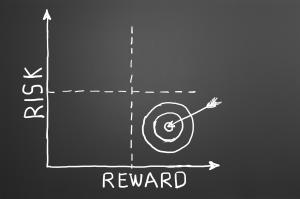
One of the most fundamental concepts in finance is the relationship between risk and return. Generally speaking, the more risk an investor takes on the more potential there is for return. But of course, more risk also means an increase in the possibility of loss. An investor’s appetite for risk will depend on many variables including their age, investment experience, time-horizon, and liquidity-needs to name a few. But what many people forget is that the risk/reward relationship is present not just in our portfolios but in almost every aspect of our lives.
Some risk/reward trade-offs are so minimal that we dismiss them as irrelevant, and rightfully so. Trying a new dish at a local restaurant runs the risk of an unpleasant dinner but the potential reward seems worth it. The stakes are higher in the case of planning a vacation to a place you have never been or purchasing a car you have never driven. The risk always lies in the unknown.
When young people graduate from high school, they must make tough decisions involving their higher education. Where they will attend college and how much debt they will take on to make it happen is one of the first major risk/reward decisions people will face. The risk of taking on huge loans can be offset if there is potential for a large income in the future. However, too many students take on far too much risk and fail to evaluate the possible return on the investment.
Unless you’ve been fortunate enough to have the same job your whole life, a career change can be a daunting challenge when it comes to evaluating risk and return. Very often people take a pay cut to change jobs with the potential for upward mobility. As is the case with college, when you change jobs, you are essentially investing in yourself. This is a risk that on its face seems worth taking but can be deceiving and impossible to remove personal biases.
But of all the life decisions we must make, none may be more consequential than who we choose to love. I often argue that the greatest risk of all is loving another human being. Most people who are married or have been married will tell you it was either the best or worst decision of their life. Bringing a child into the world is another decision with both seemingly unlimited downside and upside risk. But because the risks are so large, the potential for growth can be life changing.
Whether you are ordering a new item on the menu or getting engaged there is a risk/return relationship. And while the former risk is negligible compared to the latter, it is important to identify it, nonetheless. Because without risk there is no growth.